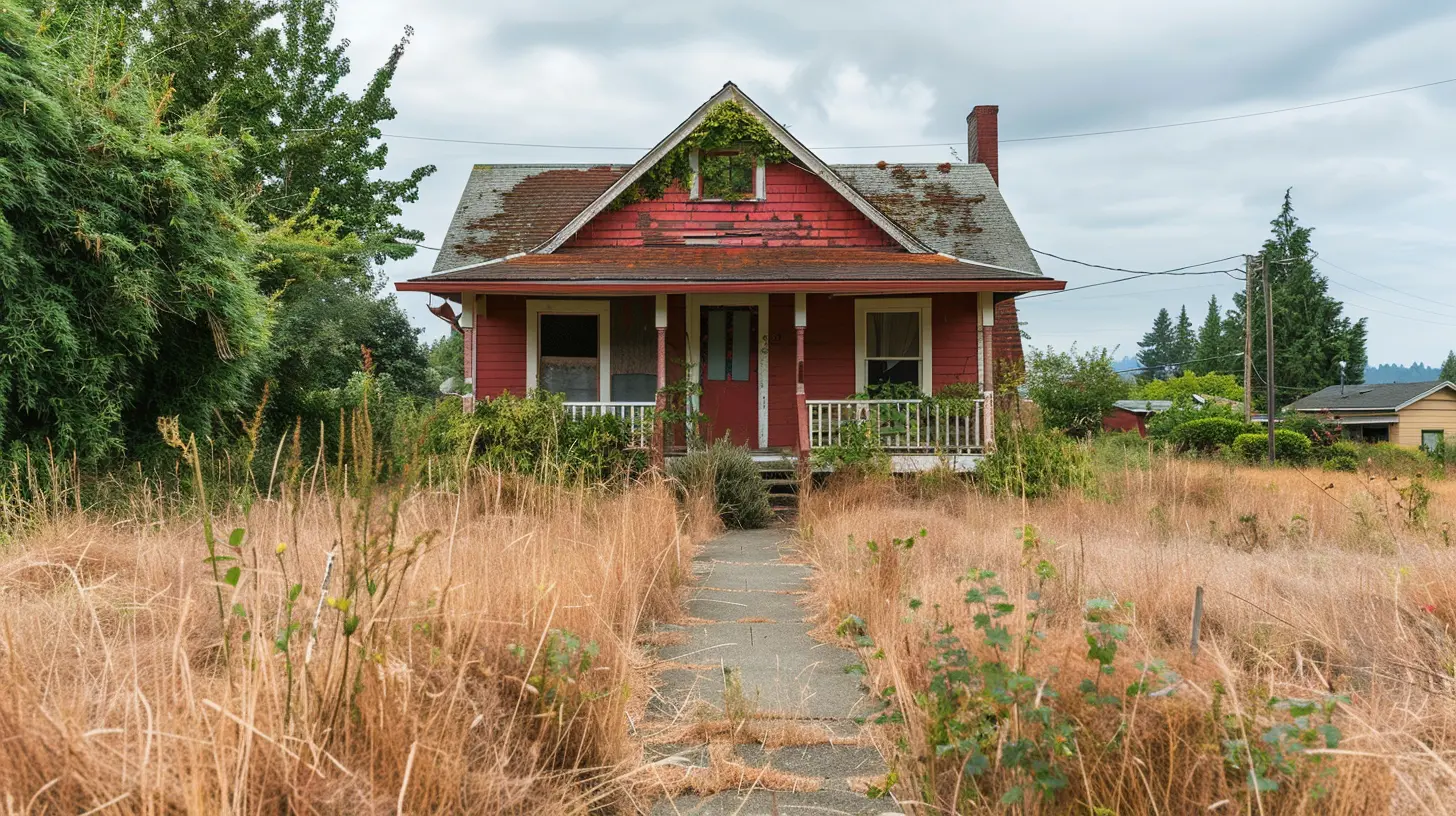How to Turn Auction Properties into Profitable Rentals
20 November 2025
Investing in real estate is a fantastic way to build wealth, and one of the most overlooked strategies is buying auction properties and transforming them into profitable rentals. These properties often sell below market value, offering investors a golden opportunity to maximize returns.
But how do you turn an auction property into a lucrative rental? It's not as simple as buying low and renting high. You need strategy, planning, and a little elbow grease. This guide will walk you through everything you need to know, from finding the right properties to managing them like a pro.

Why Auction Properties?
Buying properties at auction can feel like a high-stakes poker game. You never know exactly what you’re walking into, but if you play your cards right, you can walk away with a jackpot. Here’s why auction properties make for incredible investments:- Lower Purchase Price – Many auction homes sell for significantly less than market value, giving you instant equity.
- Less Competition – While the regular housing market is flooded with buyers, auctions tend to attract fewer bidders, increasing your chances of scoring a deal.
- Faster Transactions – Auctions move quickly, meaning you can buy a property and get it rental-ready in a much shorter time frame.
Of course, with great opportunity comes great risk. That’s why doing your homework is crucial before diving in.

Finding the Right Auction Property
Not all auction properties are created equal. Some can be turned into rental goldmines, while others are money pits. Here’s how to pick a winner:1. Set a Budget and Stick to It
It’s easy to get caught up in the excitement of an auction and overbid. Set a firm budget, factoring in the purchase price, renovation costs, and unexpected expenses.2. Research the Property in Advance
Most auction properties are sold "as-is," meaning you inherit whatever problems come with them. If possible, inspect the property beforehand or, at the very least, research its history, liens, and condition.3. Look for Strong Rental Demand
A cheap property in an area with low rental demand won’t do you much good. Research rental trends, vacancy rates, and local job markets to ensure strong rental potential.4. Understand the Auction Rules
Every auction operates a little differently. Some require full payment immediately, while others allow financing. Read the fine print so you don’t get blindsided.
Preparing the Property for Rent
Once you’ve secured your auction deal, the real work begins. Transforming it into a rental-ready home involves a few key steps.1. Handle Necessary Repairs
Most auction properties need some TLC. Prioritize essential repairs like:- Fixing structural issues
- Addressing plumbing and electrical problems
- Replacing or repairing the roof
- Updating outdated fixtures
You don’t have to go overboard, but ensuring the property is safe and functional is a must.
2. Make Smart Upgrades
Minor upgrades can dramatically increase the rental value. Consider:- Fresh paint in neutral colors
- New flooring (laminate or vinyl for durability)
- Updated kitchen appliances
- Modern light fixtures
These small tweaks can make the space feel brand new without breaking the bank.
3. Ensure Compliance with Local Rental Laws
Every city has different rental regulations. Check zoning laws, tenant rights, and safety requirements. Getting hit with fines later on can quickly eat into your profits.
Setting the Right Rental Price
Once your property is ready, it’s time to decide on the rent. Set it too high, and you’ll struggle to find tenants. Set it too low, and you’ll leave money on the table. Here’s how to find the sweet spot:- Research Comparable Rentals – Look at similar properties in the area to gauge an appropriate price range.
- Factor in Expenses – Consider mortgage payments, taxes, insurance, and maintenance costs to ensure positive cash flow.
- Offer Competitive Amenities – Things like in-unit laundry, smart thermostats, or pet-friendly policies can justify slightly higher rent.
If demand is strong, you can always test a slightly higher price and adjust if needed.
Finding and Screening Tenants
A great property means nothing without great tenants. Here’s how to attract and vet potential renters:1. Market Your Property Effectively
Don’t just throw up a basic listing and hope for the best. Use high-quality photos, write a compelling description, and list on popular rental platforms like Zillow, Craigslist, and Facebook Marketplace.2. Conduct Thorough Tenant Screening
Skipping the screening process is a rookie mistake. Always check:- Credit score and rental history
- Employment and income verification
- References from past landlords
A bad tenant can cost you thousands in damages and unpaid rent, so take your time vetting applicants.
Managing the Property Like a Pro
Once you have tenants in place, the job isn’t over. To keep your rental profitable, you’ll need to manage it effectively.1. Stay on Top of Maintenance
Regular maintenance prevents bigger (and more expensive) issues down the road. Schedule routine inspections and address tenant concerns promptly.2. Use a Property Management Company (If Needed)
Don’t want to deal with the headaches of managing tenants? A property management company can handle rent collection, maintenance, and legal issues for a small percentage of the rent.3. Build a Reserve Fund
Unexpected expenses are part of the rental game. Keep a reserve fund for emergency repairs, vacancies, and other surprises. A general rule of thumb is to set aside 10-20% of your rental income.Maximizing Profitability
Want to squeeze even more profit out of your rental? Here are a few extra tricks:- Offer Furnished Rentals – Short-term or corporate rentals can command higher rent.
- Allow Pets (For a Fee) – Many renters are willing to pay extra for pet-friendly accommodations.
- Charge for Parking or Storage – If your property has extra space, monetize it.
- Raise Rent Strategically – Gradual rent increases help keep up with inflation without scaring off tenants.
Conclusion
Turning auction properties into profitable rentals isn’t just about buying cheap and hoping for the best. It requires research, smart renovations, effective tenant management, and continuous optimization.If you’re willing to put in the work, auction homes can be one of the best ways to build long-term wealth in real estate. So, the next time you see a foreclosure or bank-owned property hitting the auction block, don’t just scroll past—this could be the investment opportunity you’ve been waiting for.
all images in this post were generated using AI tools
Category:
Real Estate AuctionsAuthor:

Lydia Hodge
Discussion
rate this article
1 comments
Kara Klein
Inspiring insights for success, thank you!
November 20, 2025 at 6:01 AM

Lydia Hodge
Thank you! I'm glad you found the insights helpful!


